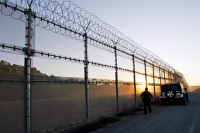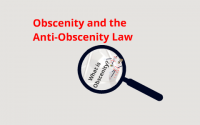Timber laws cover all aspects of the timber industry. This includes trespass actions, warranty issues, contract matters, taxation, and succession planning for timberland. Many of the laws that govern timber and its use are made by the states. There are some federal regulations regarding the use of timber as well. Timber law focuses upon the rules and practices for owning, growing, harvesting, buying and selling, and making products from trees on forested land. It encompasses the relatively unique application of (…)
Juvenile Justice and Rehabilitation
For those that want to work in juvenile rehabilitation, there are many different careers available in this field. Some of the common careers in this include juvenile counselors, juvenile court attorneys, probation officers, and judges. Those that work in the juvenile justice system will deal with troubled youths in a number of settings. The justice system for juveniles was established as a way to discipline individuals that commit a crime, but are too young to be tried as adults. There is (…)
Real Estate Law
Real estate law is the area of law that governs buying, using and selling land. It’s the law that governs how people acquire property and what they can do with the property that they own. Real estate law is also called real property law. This law is called real estate because it’s about real property. Real property is land as opposed to personal property which is objects. Fixtures that are permanently on the land like buildings or other large structures are (…)
Department of Homeland Security Careers
According to the US Department of Homeland Security (DHS.gov), as a Homeland Security employee, you will work to help protect the airports, US borders, waterways, and seaports of the United States as well as research and develop new technologies for security, respond to terrorist acts and natural disasters, and work on analyzing intelligence reports that are received. Career Opportunities There are many unique Homeland Security career opportunities available with the DHS. Law Enforcement – these careers include protecting the vice president (…)
Maritime Law
Maritime law is the collection of laws and agreements that govern behavior and activities on the seas. The area of law governs how people interact and do business on the waters of the world. Also called admiralty law, maritime law primarily governs activities on international waters. However, there are also laws that apply to the waters in and near each country. Generally, each country applies their own laws to inland waters like lakes and rivers. When most Americans board a (…)
Border Patrol Agent
According the US Customs and Border Protection (CBP), since its inception in 1924, the Border Patrol’s primary mission remains unchanged: to detect and prevent the illegal entry of aliens into the United States. This may include apprehending individuals who are in violation of the laws of immigration. Border Patrol agents also help prevent terrorists and terrorists weapons, including weapons of mass destruction, from entering the United States. Qualifications In order to start a border patrol career a person must be under the (…)
Parole Officer
While parole officers and probation officers are often discussed together, these two jobs are not identical. A parole officer works with a person that has been released from a state or a federal prison. A prisoner may be released on parole, but the individual is still not completely free of supervision and the release has strict conditions. Parole can be revoked for almost any type of infraction. The role of a parole officer is to help an individual that has been incarcerated (…)
Food Law
Food law is the collection of laws and regulations that govern food production, distribution and consumption. Food laws aim to protect consumers and provide for the efficient growth and use of food in the United States. Food attorneys focus their careers on helping clients comply with food laws and regulations. In addition, they work on behalf of government agencies making or enforcing food laws and policies. Food laws cover a variety of topics Most people know that food laws govern (…)
DEA Agent
According to the Drug Enforcement Administration (DEA.gov), the DEA is the premier drug enforcement organization in the world and the only single mission federal agency dedicated to drug law enforcement. Using unique operational and intelligence capabilities, the men and women of DEA identify, investigate, disrupt, and dismantle major drug trafficking organizations and those who facilitate them, remove drugs and violent criminals from our neighborhoods, and fight the diversion of licit drugs. For those that are interested in working for the Drug (…)
Insurance Law
Insurance law is the collection of laws and regulations that relate to insurance. Insurance is a contract between two parties. It transfers the risk of loss to the other party to the contract in exchange for a fee called a premium. Insurance laws and regulations manage and control how insurance contracts are formed and enforced. Insurance laws manage the offering, buying, selling and claims processes for insurance in the United States. In the United States alone, insurance is a trillion dollar (…)
How to Become a Criminal Investigator
Criminal investigators are individuals who investigate crimes and other events for legal and official purposes. They’re professionally licensed, but they don’t work for a government agency like police officers do. Instead, they work for hire on behalf of private clients. They might end up using the results of their investigation in a criminal proceeding. What does an Criminal Investigator Do? An investigator for criminal offenses helps their client prove or disprove facts relating to a criminal allegation. They pursue leads (…)
Oil and Gas Law
Oil and gas law is the area of law that governs oil and gas production. Oil and gas laws determine who owns the right to mine for oil and gas. It determines what conditions miners have to follow when they harvest oil and gas. The field of oil and gas law is a mix of common law, statutory law and administrative regulations that govern the mining and harvesting of these natural resources in the United States. What are oil and gas (…)
Immigration Law
Immigration law is the combination of laws, rules and regulations that govern who can enter a country. Immigration and naturalization are two different things. Immigration governs who can come and go from a country. Naturalization controls who can become a citizen. However, they’re interrelated topics. Attorneys who practice immigration law usually have a practice that encompasses both immigration and naturalization. Where Do Immigration Laws Come From? In the United States, immigration laws exist on a national level. The U.S. President has significant control over (…)
Nationality Law
Nationality law is the body of law that governs how a person gains or loses citizenship. Also called citizenship law, nationality law is the law of how a person becomes a citizen of a country or forfeits the citizenship of a country. The area of law also involves the rights and obligations of a citizen. Nationality law is distinct from immigration law Even though immigration law has a lot of overlap with nationality law, they’re not quite the same things. Immigration (…)
How to Become a Social Worker
Social workers assist others in dealing with life issues. The social worker may assist a person or group of people in working through an array of emotional effects resulting from drug or substance abuse, trauma, illness, difficult relations, and other challenging scenarios. The social worker may work in a medical center, school, hospital, clinic, or another location. The steps to becoming a social worker are: #1. Earn a Bachelor’s Degree in Social Work In most states, earning a Bachelor’s degree (…)
Native American Law
Native American law is the collection of laws, administrative rules and other authorities that impact Native American populations and their relationship to the United States and state governments. Native American law defines the relationships between Native American tribes and other governments. It also encompasses the self-government of Native American tribes. Achievements in Native American law There are several purposes to Native American law. The laws seek to allow Native Americans to self-govern in an effective and fair way. The laws (…)
Construction Law
Construction law is the combination of all of the areas of law that apply to construction work. The process of building is complex. Builders have to follow a large number of rules and regulations. There are many things that they need to know and do before they ever pour the first bit of cement or clear the first tree. People in the construction industry have to work with private entities and government representatives in order to conduct business. They must (…)
Obscenity Law
Obscenity law is the law that regulates what images, speech and other expressions individuals can lawfully communicate. Obscenity law concerns itself with banning or suppressing speech that violates standards of good taste and decency. The area of law balances legitimate communication in a free society with the purposes of public censorship. The practice of obscenity law involves prosecuting and defending cases that challenge and interpret obscenity laws. Why do obscenity laws exist? Obscenity laws protect a sense of morality in (…)
Law Clerk
A law clerk will help lawyers and judges in law firms, courts, and other types of legal settings. In order to become a law clerk there is some training required. The legal field is extremely complex and changes consistently. In order to keep up with these changes a team of legal professionals is necessary. According to the Bureau of Labor Statistics (BLS), there were 41,550 law clerks employed throughout the United States. Job Description of a Law Clerk A law (…)
Computer Law
Computer law encompasses all of the laws that relate to the transfer, use and storage of electronic information. Basically, it’s any law that has to do with computers and other electronic devices that store information. Computer law includes a wide range of topics including security, private property rights and even constitutional law. Contracts When you buy a computer, sign up for an account on a website or even complete a credit application online, you have to check the box that (…)




















